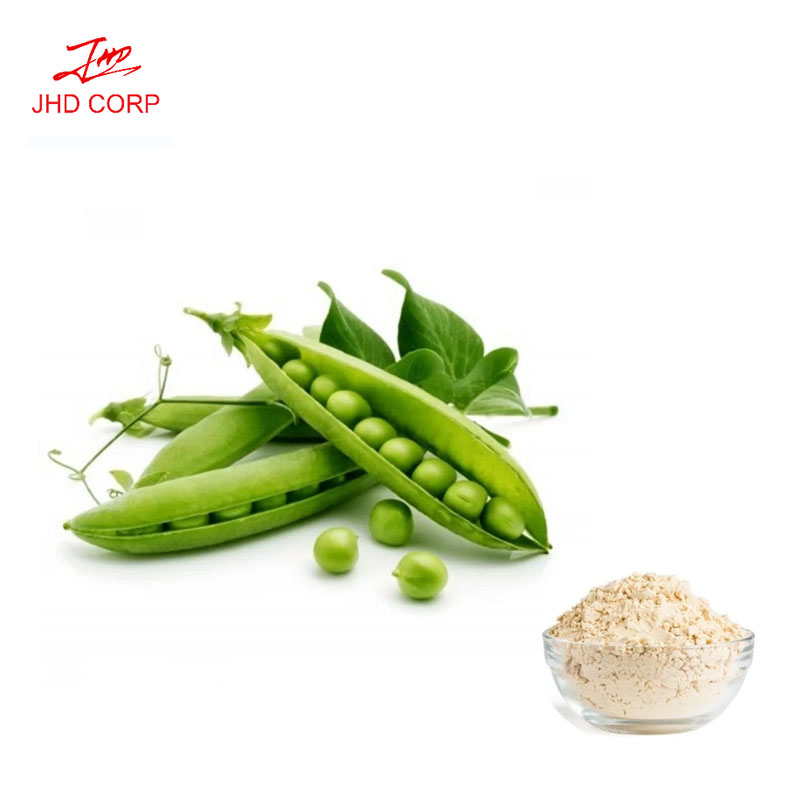
Pea Protein 80% Powder
- Product Code: PP8
| Ship From Warehouse | In Stock | Backorder Lead Time |
|---|---|---|
|
|
Login to View. | Login to View. |
Pea Protein 80% Powder
Introduction
Pea protein is rich in branched chain amino acids (BCAAs), protein compounds that have been shown to delay fatigue during exercise. That's exciting, because the amount of BCAAs in pea protein comes close to those found in milk and eggs, but is less likely to cause allergic reactions or intolerances. Pea protein also contains arginine, an amino acid shown to enhance immunity, fight erectile dysfunction and improve fertility. The lysine content in peas helps the body absorb calcium and decreases the amount of calcium lost in urine, thus helping to maintain strong bones. And peas are a plant, so it's a protein source that's lower on the food chain (thus more "green"), and in line with the general shift towards a plant-based diet.
When protein is isolated from a food, it's more compact. One quarter of a cup of dry yellow split-peas contains about 10 grams of protein, along with 28 grams of carbohydrate. But one scoop of Now Foods' unflavored non-GMO pure pea protein powder packs 28 grams of protein, slightly more than a 3-ounce chicken breast, with just 1 gram of carbs.
Functions
1).Pea protein have very high water-holding and oil absorption properties as well as good gel forming property, which can be used in hams and other meat products as an excellent additive.
2).Pea protein has a certain degree of foamability and foam stability, which can partially replace eggs to be added to pastry products.
3).Pea protein has excellent emulsifiability and emulsion stability, which can be used as emulsifiers for various types of foods; Pea protein can quickly emulsify fat, to prepare sausages with good emulsifiability. Sausages made in this way are very tasty with high nutritional values.
4).If added into biscuits, Pea protein can enhance the flavor and strengthen the proteins; in addition, it can be developed into health foods having different functions.
5).Pea protein can also be used in flour products. For example, adding pea peptide into flour can improve the nutritional value, intensity and gluten strength of noodles, and thus improve the appearance and taste of flour foods.
6).Peas liquor. The technological problem that peas containing a large amount of proteins (20%) and fat cannot be fermented to make liquors is successfully tackled by using biotechnology. This type of liquor is rich in Pea protein, which can not only be absorbed by the human body, but also enhance the immune function, demonstrating its active role in inhibiting oxidation, scavenging free radicals, lowering blood pressure, blood fat and cholesterol, and resisting cancer, fatigue and aging.
7).When used in cosmetics, Pea protein can inhibit elastase, protect elastin, improve skin elasticity, increase skin tightness, and stimulate the synthesis of collagen, elastin, and glycosaminoglycan (chondroitin sulfate).

